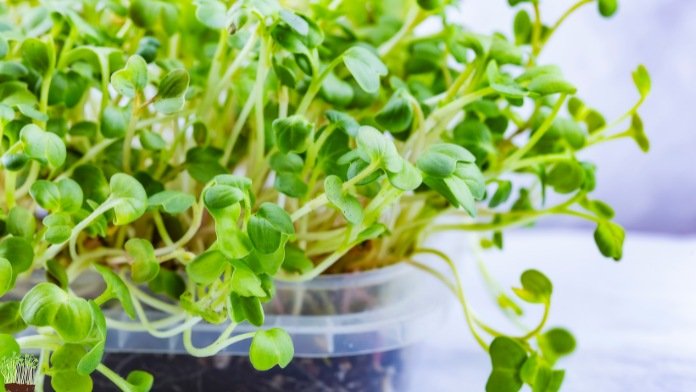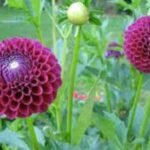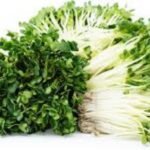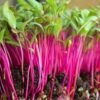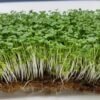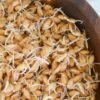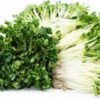Basil sprouts are the first signs of life appearing when basil seeds germinate. These tiny green shoots mark the beginning of the basil plant’s growth cycle and are an exciting milestone for gardeners. Whether you’re growing sweet basil, Genovese basil, or another variety, basil sprouts are essential in growing basil from seed.
As these seed sprouts emerge from the soil, they signal that your seeds are healthy and the growing conditions are right. These young basil plants require a little care and attention to thrive, eventually developing into the lush, fragrant basil leaves used in various dishes.
In this guide, we’ll explore the world of basil sprouts, explaining how to care for them, how long they take to sprout, and the best conditions for growing basil from seed.
What Are Basil Sprouts?
Basil sprouts are the first signs of life after sowing basil seeds. These tiny, tender shoots emerge from the soil as the seeds germinate, eventually growing into the lush, aromatic basil plants we love. Seed sprouts are an exciting early growth stage, signaling that the seeds are healthy and the conditions are suitable for your basil to flourish.
Basil is a warm-weather herb that thrives in sunny environments and requires a little attention to detail to ensure success. From sweet basil to Genovese basil, this herb can be grown quickly from seed, whether in pots, containers, or the garden.
How to Sprout Basil Seeds: Step-by-Step Guide
Step 1: Choose the Right Basil Variety
Before starting basil from seed, choosing the suitable variety for your needs is essential. Common basil varieties include:
Sweet Basil
This is the most widely grown variety, prized for its fragrant leaves, perfect for cooking.
Genovese Basil
This basil has large, aromatic leaves and is a favorite for making pesto. It is also commonly used in Italian cuisine.
Thai Basil
Known for its slightly spicy and anise-like flavour, it is often used in Southeast Asian dishes.
Tips: For beginners, sweet basil is usually the easiest to grow. Once you’ve decided on the type of basil you want to grow, it’s time to sow basil seeds and get your growing season underway!
Step 2: Prepare the Soil and Environment
To grow basil from seed successfully, you must create the right environment. Basil seeds are delicate, so proper seed starting and a warm, sunny location are essential.
Soil Preparation
Start by amending the soil if you’re growing basil in your garden. Basil prefers draining soil, so if your soil retains too much moisture, you may want to add organic matter like compost or sand to improve drainage. For container gardening, use a high-quality, well-draining potting mix.
Containers and Pots
If you’re starting basil indoors or in containers, choose pots or trays with adequate drainage holes to prevent excess water from accumulating, which could cause root rot. When planting the seeds, ensure the containers are at least 3-4 inches deep.
Temperature and Light
Basil seeds require warmth to germinate, so place your pots or seed trays where they can receive grow lights or direct sunlight for at least 6 hours a day. The ideal temperature for basil seed germination is between 70°F and 80°F (21°C to 27°C).
Step 3: Planting Basil Seeds
Now that you have prepared the soil, it’s time to plant the seeds.
Sow the Seeds
Gently sprinkle basil seeds over the surface of the soil. Since basil seeds need light to germinate, cover them with a manageable amount of soil. A thin layer is enough. Press the seeds lightly into the soil with your hands or a flat tool.
Watering
Gently water the soil with a fine mist to keep it moist, but avoid soaking it. The goal is to maintain consistent moisture without causing waterlogging. Basil seeds will germinate faster when the soil stays moist but avoid letting excess water accumulate in the container.
Germination Time
Generally, basil seeds will begin to sprout and show small green shoots within 5 to 10 days. The actual time may vary depending on temperature and moisture conditions.
Step 4: Caring for Basil Sprouts
Once the basil seeds germinate, your sprouts need proper care to grow into healthy plants.
Light Requirements
Basil sprouts need at least 6 hours of direct sunlight per day. If growing basil indoors, consider using grow lights to ensure your sprouts get enough light to grow strong and healthy.
Watering
Water the basil sprouts gently, ensuring the soil remains consistently moist. Be careful not to overwater, as basil doesn’t like sitting in excess water. If you’re growing basil in containers, ensure your pots have drainage holes to prevent water from accumulating at the bottom.
True Leaves
Once your basil sprouts have grown a few inches tall and developed true leaves (the second set after the cotyledons), they can be transplanted into larger containers or the garden.
Transplanting Basil Sprouts
When your basil plants have developed a healthy root system and at least two sets of true leaves, it’s time to transplant them to their final growing spot, which could be the ground or larger pots.
Choose the Right Spot
Basil needs sunlight for at least 6 hours daily, so pick a sunny spot for your plants to thrive.
Spacing
Space your basil plants 10-12 inches apart in the garden or containers to allow room for growth. This also helps prevent overcrowding, promote better airflow, and reduce disease risk.
Planting in the Garden
Before transplanting basil into your garden, amend the soil with organic matter to improve texture and drainage. Basil prefers slightly acidic soil to neutral (pH 6.0-7.0).
Common Mistakes When Growing Basil from Seed
Growing basil from seed is straightforward, but there are a few common mistakes to watch out for:
Overwatering
Basil doesn’t like wet feet. Always ensure the soil is well-drained and avoid overwatering, especially during the seed germination phase.
Not Using Drainage
When growing basil in containers, ensure the pots have adequate drainage holes. Without drainage, excess water can pool at the bottom of the container, leading to root rot.
Planting Too Deep
Basil seeds need light to germinate, so avoid burying them too deeply in the soil. A light press is enough to secure them.
Insufficient Light
Basil needs plenty of sunlight. If growing indoors, supplement natural light with grow lights to ensure your sprouts develop strong stems and healthy leaves.
FAQ
How long does it take for basil to sprout?
Basil seeds typically take about 5-10 days to sprout. The exact time depends on the seeds’ temperature, moisture levels, and quality.
Should I pinch basil sprouts before planting them?
No, you don’t need to pinch basil sprouts before planting them. Pinching is done once the basil plant has matured and reached a height of 4-6 inches. Pinching encourages bushier growth and prevents the plant from becoming too leggy.
What are the “true leaves” in basil?
The true leaves are the second set of leaves that appear after the initial seed leaves (cotyledons). These leaves indicate that your basil plants are ready for transplanting.
Can I grow basil from seed in containers?
Yes, you can grow basil from seed in containers. Just ensure the container has good draining soil and has drainage holes to allow excess water to escape.
What should I do if I see flowers on my basil plant?
Basil flowers can cause the plant’s leaves to lose flavor. To encourage continued leaf production, pinch off the flowers as they appear. Regular harvesting of basil leaves will also prevent flowering and promote bushier growth.
Conclusion
Growing basil from seed is an easy and enjoyable way to add fresh herbs to your meals throughout the year. Following the steps outlined in this guide, you can start basil successfully, nurture your basil plants, and harvest flavorful basil leaves in no time. Remember to provide your basil with plenty of sunlight, moisture, and well-draining soil. And you’ll be rewarded with a beautiful, aromatic herb garden.
Whether growing sweet basil, Genovese basil, or another variety, growing basil from seed is enjoyable and satisfying.
